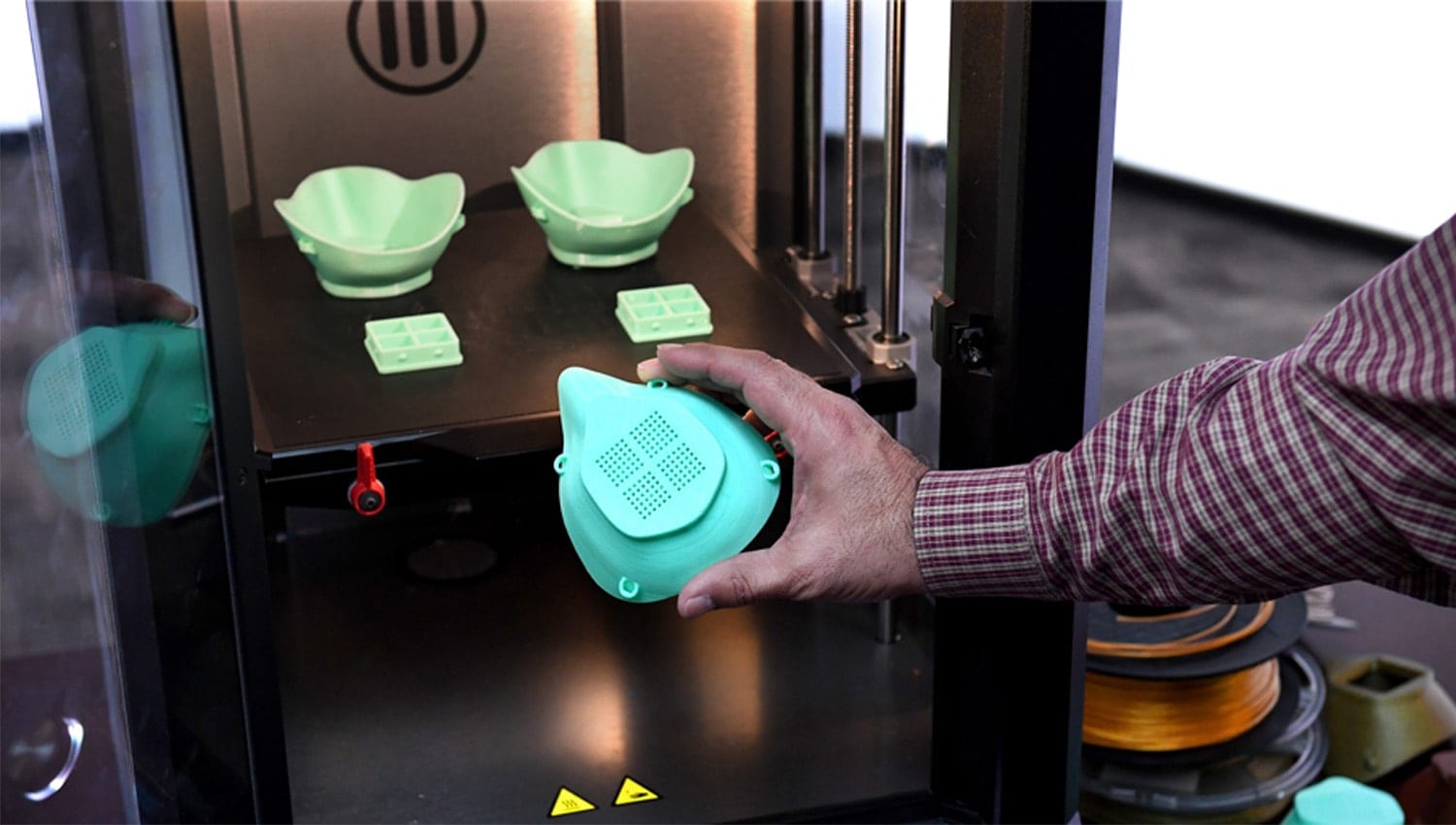Rowan University releases blueprint for 3D printed PPE mask for COVID-19 protection

GLASSBORO – Plans for 3D printed personal protective masks designed by Rowan University medical students and engineers are now available for public use.
Rowan University students — with oversight by engineering and chemistry faculty — designed the masks over the last week for healthcare workers on the front lines.
While the university searches for ways to mass produce the masks, the state institution has uploaded filed for 3D printer owners to make their own masks and help produce masks for their effort.
Rowan made the plans available on its website.
“This is part of a humanitarian effort by Rowan,” said Dr. Shreekanth Mandayam, an engineering professor on the university’s Glassboro campus who is leading the project.
“It’s not just New Jersey and South Jersey where we are. There are plenty of countries around the world where there’s a shortage of PPE. This is a low-cost quick solution people can use.”
This personal protective face covering does have a filter, but it is meant to protect wearers from droplets from a cough or sneeze, Mandayam said.
The filters are using HEPA material, often found in air purifiers. The filters are unique in that the filter area can be replaced with any type of material available, including gauze.
The plans on the college’s website is the second version engineers designed. Over the weekend prototypes were given to Inspira and Cooper hospital staff for feedback, Mandayam said.
Feedback issues focused on the fit which Mandayam said was adjusted in the second version.
The university is still seeking companies to produce the masks in mass.
Currently, production is reliant on university-owned 3D printers and volunteers with home 3D printing capabilities. Production is slow, though. Printing one mask takes about two hours.
“There is such demand for this and such an enthusiasm in the community, which I am so impressed by,” Mandayam said.
“Former students I haven’t heard from in 23 years are offering to help.”
Private citizens are offering their 3D printers, he said, noting there has been preliminary interest in producing the masks by large corporations in South Jersey and Philadelphia. It’s too soon to know if if those businesses have the capability to produce the masks.